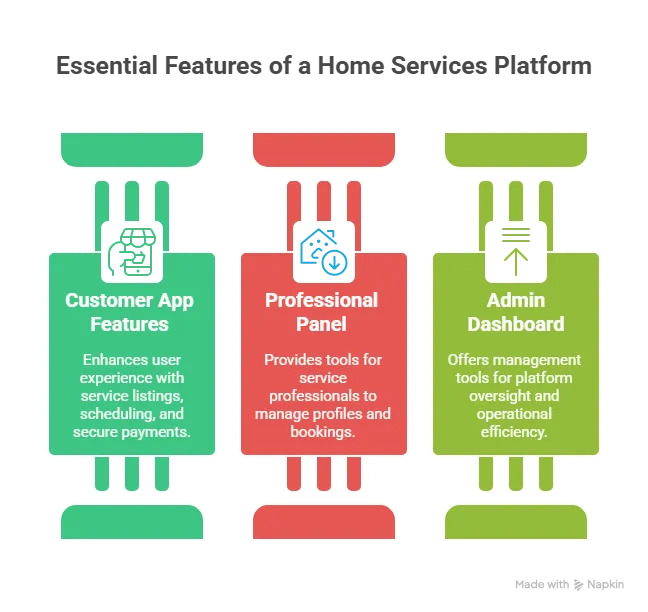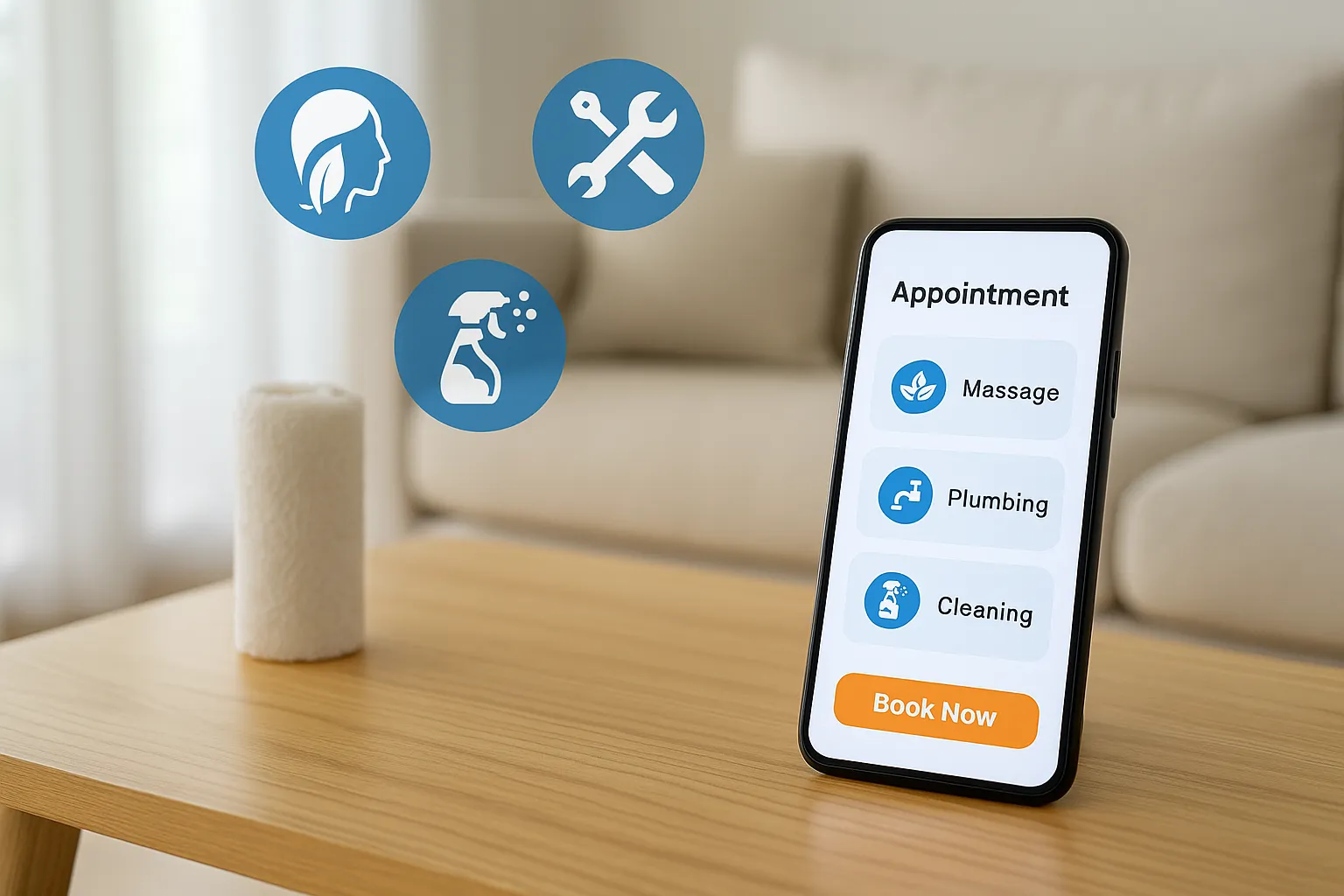Once upon a time, finding a reliable plumber, beautician, or home cleaner involved phone calls, neighbor referrals, and blind trust. Fast forward to today, and consumers expect to book professional services with the same ease they order food or stream movies. From doorstep spa sessions to appliance repairs, on-demand service apps are simplifying life in more ways than one.
UrbanClap, now known as Urban Company, capitalized on this shift by becoming a full-scale home services marketplace. Its success sparked a wave of similar platforms globally. If you’re an entrepreneur looking to ride this wave in 2026, the opportunity is massive—and the technology is already within reach.
With a robust UrbanClap clone script, you can launch your own service booking platform tailored to your local market or niche segment. Let’s dive into what these clones offer, how they’re priced, and why they’re one of the most profitable models in the digital economy today.
Why UrbanClap’s Model Works in 2026
The real strength of the UrbanClap model lies in its trust system. It doesn’t just connect users with service professionals—it assures them that the person arriving at their door is vetted, punctual, and qualified. In 2026, the demand for such trust-based service platforms is only growing.
As urban life becomes busier and consumers look for convenience and quality over price, the service marketplace continues to expand. Beyond cities, even suburban and semi-urban regions are embracing platforms that let them book everything from pest control to fitness trainers on demand.
This rising trend makes the UrbanClap clone model especially relevant for founders targeting localized markets, niche services, or curated professional offerings.
Read More : What is UrbanClap App and How Does It Work?
Must-Have Features in a Modern UrbanClap Clone Script

A home services platform must cater to three user groups: customers, service professionals, and admins. Here’s a breakdown of essential features:
Customer App Features
- Service listing by category (beauty, repair, cleaning, etc.)
- Professional profiles with ratings and reviews
- Live availability and appointment scheduling
- Secure payment options and wallet integration
- Real-time booking tracking and history
- In-app messaging or support request
Professional Panel
- Profile management with service pricing and expertise tags
- Job availability toggling
- Booking acceptance and scheduling
- Wallet and earnings summary
- ID verification and KYC upload portal
- Performance analytics and review feedback
Admin Dashboard
- Category and sub-category management
- User and provider onboarding
- Commission settings, tax controls, and payout management
- Dispute resolution tools
- Marketing and notification engine
- Reporting for bookings, revenue, and support tickets
This feature trio ensures that the platform remains efficient, transparent, and trustworthy.
Read More : UrbanClap Feature List for Startups Building Service Apps
Advanced Capabilities in 2026 Clone Solutions
Clone scripts today offer much more than basic booking and payments. The top solutions in 2026 include:
- AI-powered service recommendations based on user behavior
- Route optimization for professionals with multiple bookings
- Real-time map tracking of service professionals
- Dynamic pricing during peak demand (e.g., weekends or holidays)
- Subscription plans for routine services (monthly cleaning, grooming)
- Multilingual interfaces and region-specific offerings
Some scripts also support hybrid service models—where both in-home and virtual sessions (like online yoga or consulting) are available under the same platform.
Cost Factors & Pricing Breakdown
UrbanClap-Style On-Demand Home Services Platform — Market Price
| Development Level | Inclusions | Estimated Market Price (USD) |
|---|---|---|
| 1. Basic UrbanClap-Style MVP | Core marketplace with customer registration & login, service categories (cleaning, repairs, beauty, appliance service, etc.), location-based browsing, basic search & filters, service detail pages, simple booking form, order history, and a basic admin panel to manage categories, bookings, and users. | $50,000 |
| 2. Full-Feature UrbanClap-Like Platform | Everything in MVP plus real-time slot-based booking & rescheduling, in-app provider profiles with ratings & reviews, service packages & pricing, coupons & promo codes, in-app chat/call masking, multiple payment options (cards, wallets, UPI, COD), cancellation & refund logic, referral system, notifications (SMS/email/push), and detailed analytics on bookings, revenue, and service performance. | $120,000 |
| 3. Enterprise-Grade Home Services Ecosystem | Multi-city & multi-country setup, dedicated provider app/panel, advanced provider onboarding & KYC, earnings & payout management, surge/zone-based pricing, complex commission rules, subscription/maintenance plans, integrations with third-party CRMs and accounting tools, marketing automation, customer loyalty program, and highly scalable cloud hosting with monitoring & security hardening. | $240,000+ |
These prices reflect the typical global custom development cost of building an UrbanClap-style home services marketplace from scratch — including service discovery, booking engine, provider management, payments, security, and scalable infrastructure.
Miracuves Pricing for an UrbanClap-Like Platform
Miracuves Price: $2,899
In the Miracuves solutions pricing sheet, the UrbanClap-style home services marketplace is a PHP-based ready-made on-demand services platform with a Listed Price (LP) of $2,899. It includes customer and provider modules, booking & scheduling, payout management, offers/discounts, and a powerful admin backend — delivered as a white-label UrbanClap-style solution instead of a long, risky custom build.
Note: This package includes full non-encrypted source code, backend/API setup, web front-end, admin panel configuration, and deployment assistance — so you can host, customize, and scale your UrbanClap-like platform fully under your own brand. Launch your UrbanClap-style home services marketplace with Miracuves and go live in just 3–9 days with a fully branded, revenue-ready platform.
Delivery Timeline for an UrbanClap-Like Platform with Miracuves
Estimated deployment timeline: 3–9 days, depending on:
- Number of cities/regions and service categories (cleaning, beauty, repairs, maintenance, etc.)
- Required monetization options (commissions, subscription plans, surge pricing, featured providers)
- Design, UI customization, and branding (logo, colors, layouts, provider portfolio styling)
- Localization needs (languages, currencies, tax rules, regional pricing)
- Payment gateway & communication integrations (UPI, cards, wallets, SMS, email, WhatsApp)
- Hosting environment, domain & SSL setup, and performance optimization scope
Tech Stack
Built using PHP + MySQL with modular APIs — enabling secure customer onboarding, provider verification, booking & scheduling workflows, payout and commission management, and scalable performance for high-demand UrbanClap-style on-demand home services platforms.
Ideal Use Cases for an UrbanClap Clone
UrbanClap clone scripts can be tailored to a wide variety of business models beyond just home services. Here are some examples:
- Local service marketplaces targeting Tier-2 cities or rural hubs
- Industry-specific apps like salon-only booking platforms
- Corporate service portals for employee well-being or facility maintenance
- Franchise-based models where service providers are brand-certified
- Niche platforms offering eldercare, pet services, or event management
The model is extremely flexible. With smart positioning and local adaptation, your clone app can solve high-frequency service needs efficiently.
Monetization Strategies for a Service Marketplace
While many platforms rely on commissions, there’s room to diversify revenue. Here’s how founders monetize UrbanClap-style platforms:
- Commission per booking from service professionals
- Subscription fees for premium professionals or businesses
- Featured listing and ad placements
- Booking fees from users during peak hours
- Membership plans for customers (with discounts and free services)
- Add-on sales like kits, products, or accessories relevant to services
Some platforms also bundle value-added services like insurance coverage for bookings or post-service warranties.
Read More : Reasons startup choose our UrbanClap clone over custom development
Conclusion
UrbanClap redefined how people book services—and now, you can take that model and make it your own. In 2026, the home services marketplace is wide open for innovation, regional personalization, and niche solutions. With a powerful clone script, you don’t need to start from scratch. You can launch a platform that’s trusted, easy to use, and scalable from day one.
Whether you’re targeting one city or planning a national rollout, a well-developed UrbanClap clone puts you in the driver’s seat of a growing market that’s increasingly digital and demand-driven.
At Miracuves, we help innovators launch high-performance app clones that are fast, scalable, and monetization-ready. Ready to turn your idea into reality? Let’s build together.
FAQs
What is an UrbanClap clone script?
It’s a pre-built software platform that allows you to launch a service marketplace similar to UrbanClap, connecting customers with professionals for home or virtual services.
Can I launch this in just one category?
Yes, many businesses start with a single vertical like beauty services or home repairs and expand later using modular architecture.
How do I onboard service providers?
Clone platforms include professional sign-up flows with ID verification, KYC, and profile setup tools to streamline onboarding.
Can I limit services by region or pin code?
Absolutely. You can configure service availability by area, city, or zone to manage operations efficiently.
Do clone scripts support in-app payments?
Yes, most scripts integrate popular payment gateways and support wallets, cards, and COD (where applicable).
Is background verification supported?
Advanced scripts allow integration with third-party verification tools or offer manual admin approval for professionals.








